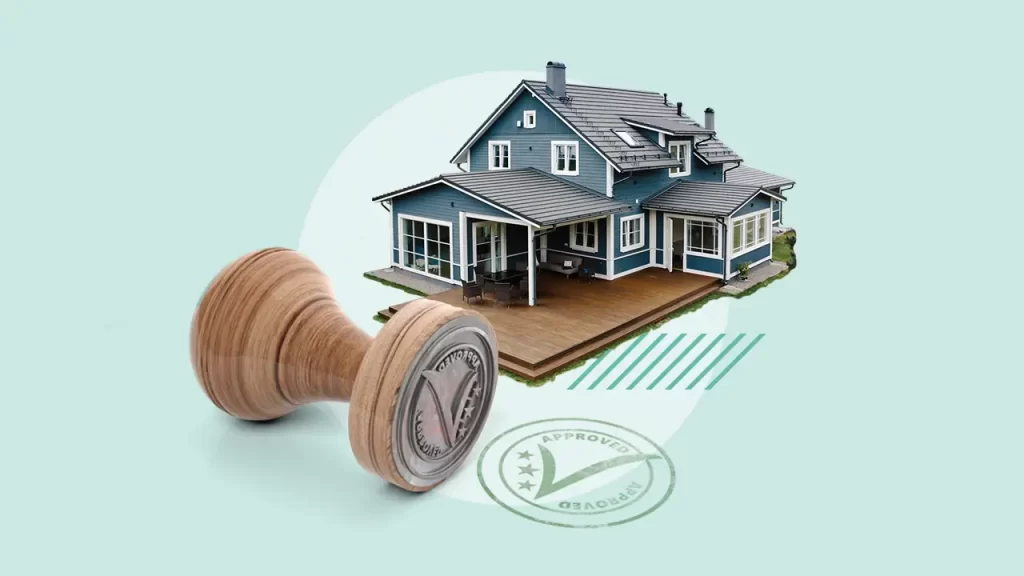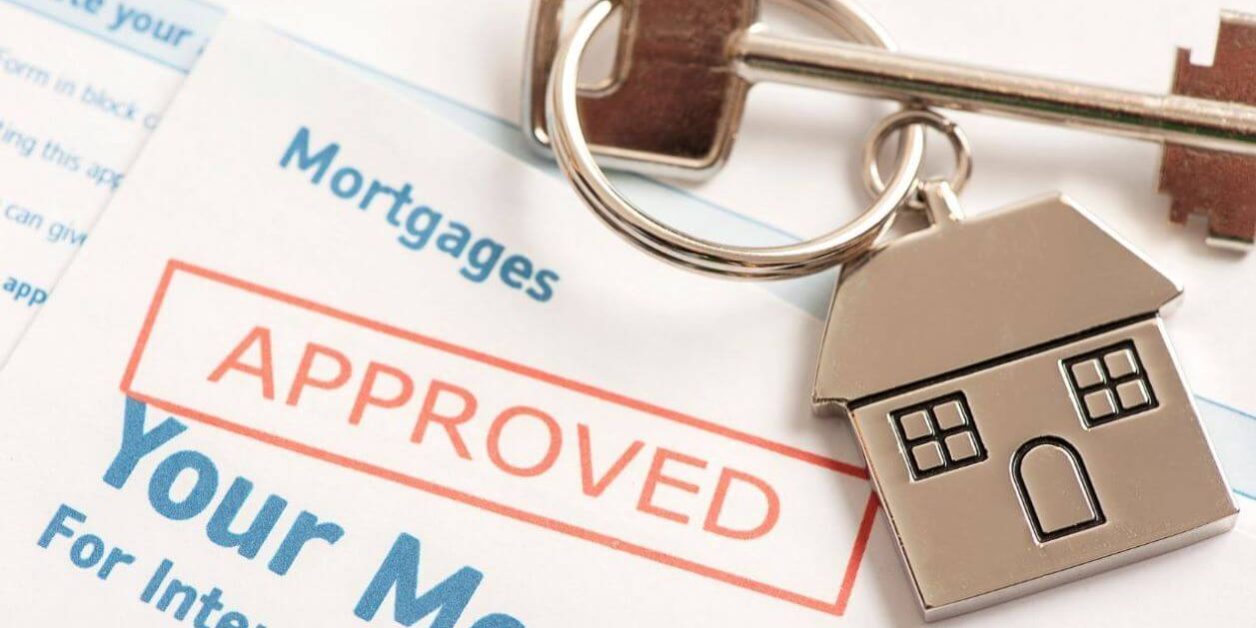Thinking about buying a home? Getting approved for a mortgage in Canada requires thorough preparation, both mentally and financially. While exploring open houses and finding a realtor might feel like natural starting points, a key focus for prospective buyers should be securing mortgage approval.
Qualifying for a mortgage is the most significant step in the home-buying journey. It involves taking an honest look at your financial health—a process that, while potentially daunting, can significantly increase your chances of approval at an attractive interest rate if done in advance.
Why Getting Approved for a Mortgage is Crucial
Before diving into the specifics of how to get approved for a mortgage, it’s important to understand why securing approval is the foundation of the home-buying process. Without mortgage approval, even the most well-planned house search can come to a standstill. Not only does approval give you the green light to purchase within your budget, but it also signals to sellers that you are a serious, financially prepared buyer. This can make your offer more attractive in a competitive market.
Mortgage approval also determines the loan amount, interest rate, and repayment terms you’ll have access to, all of which influence your long-term financial well-being. A solid approval means fewer surprises down the road and a smoother transition into homeownership.

By understanding what mortgage lenders are looking for and taking steps to improve your financial profile, you can significantly enhance your chances of getting approved for a mortgage, often with better rates and terms. If you’re struggling with debt, exploring debt solutions for individuals and families could be a good starting point.
Tips to Get Approved for a Mortgage
Securing a mortgage approval is a critical step in the home-buying journey, and understanding what lenders are looking for can help you prepare. By following these essential tips, you can improve your financial standing and increase your chances of getting approved for the mortgage you need. Let’s take a look at the key steps that can help position you as a strong candidate for mortgage approval.
Here’s a list of seven key steps to help get your mortgage application approved.
Check Your Credit Score to Get Approved for a Mortgage
In Canada, credit scores range from 300 to 900 and fall into five categories: Poor, Fair, Good, Very Good, and Excellent. While the categories can vary slightly between credit bureaus, the process of assessing your financial health is consistent. Your credit score provides a snapshot of your overall financial stability, making it essential to know where you stand.
Mortgage lenders rely on your credit score to determine your financial reliability and ability to repay loans. A higher credit score increases your chances of getting approved for a mortgage with the best rates in Canada. Ideally, your score should be at least 660, but higher is preferable. In addition to the numerical score, your credit report includes details like late payments, open accounts, total debt, and the length of your credit history. Paying bills on time and keeping your credit utilization low can significantly boost your score. If you’re struggling with high credit card debt, seeking credit counselling services in Toronto may help improve your financial outlook.
You can check your credit score for free through various online services that use Canada’s two main credit bureaus, Equifax and TransUnion. It’s wise to review your score quarterly and take steps to improve it for better mortgage approval odds.
Save a Larger Down Payment to Get Approved for a Mortgage
When buying a home, a down payment is a crucial requirement. A larger down payment not only reduces the amount you need to borrow—saving you interest over time—but also strengthens your chances of getting approved for a mortgage.

In Canada, minimum down payment requirements depend on the property price:
- Under $500,000: A minimum of 5% of the purchase price.
- $500,000 to $1,499,999: 5% on the first $500,000 and 10% on the remaining amount.
- $1.5 million and above: A minimum of 20% of the purchase price.
Saving a larger down payment not only reduces your mortgage amount but also positions you as a stronger candidate for mortgage approval, potentially unlocking better interest rates.
In Canada, if your down payment is less than 20% of the home’s purchase price, you’ll need to purchase mortgage loan insurance. These insurance premiums will add to your monthly mortgage payments, increasing your overall costs.
It’s a good idea to save as much as possible for your down payment. While this can be challenging—especially in expensive markets like Toronto and Vancouver, where home prices often exceed a million dollars—the more you can put down upfront, the better your chances of getting approved for a mortgage. For those struggling with debt, considering options like a consumer proposal in Toronto may help reduce existing financial burdens.
To plan effectively, use tools like our mortgage payment calculator to explore different down payment and amortization scenarios. This tool can also help you compare variable and fixed mortgage rates. For a deeper dive into amortization, our amortization calculator allows you to test various amortization periods and see how they influence your monthly mortgage payments over time.
How to Get Approved for a Mortgage: Keep Your Income Stable
Maintaining a stable income is crucial when applying for a mortgage. Lenders need proof that you can consistently make your payments, and having a full-time job is one of the best ways to demonstrate long-term income stability. Staying with the same employer for an extended period can also strengthen your application. If you’re applying for a mortgage with a partner, it’s ideal for both of you to have full-time employment.

In times of economic uncertainty, income stability becomes even more critical. The last thing you want is to secure a mortgage only to lose a major source of income. However, if you’re faced with a compelling job opportunity during this time, consider reading our guide on changing jobs while house hunting for tips on navigating this situation.
For those working on a casual basis, transitioning to a permanent role, even part-time, during your mortgage application could improve your chances of approval. Securing a favourable mortgage rate can save you tens of thousands of dollars over time, making the effort worthwhile.
If you’re self-employed, the process can be more complex. You’ll need to provide detailed documentation of your business’s financial performance over several years to prove your ability to meet mortgage payments. To enhance your chances of approval, consider consulting with a licensed mortgage broker. These professionals can guide you through the process and help you prepare a strong application tailored to your unique circumstances. If your financial situation is more complex, including debt solutions such as corporate proposals or personal bankruptcy services in Toronto may provide further assistance.
Pay Down Existing Debt to Get Approved for a Mortgage
When applying for a mortgage, minimizing your existing debt is essential. A mortgage is a significant long-term financial commitment, and reducing other obligations will make it easier to manage your monthly payments. Lenders assess your debt-to-income ratio as part of the approval process, so keeping your current debt low can improve your chances of getting approved for a mortgage.
While it’s not necessary to have zero balances on credit cards, lines of credit, or student loans, your existing debt will influence how much you can borrow and the interest rate you’ll receive. Lower debt levels not only boost your borrowing power but also positively impact your credit score, making you a more attractive candidate to lenders.
Get Pre-Approved for a Mortgage
A mortgage pre-approval is when a lender reviews your financial situation and grants pre-approval for a specific mortgage amount, interest rate, and term. Pre-approvals typically last between 90 to 120 days, depending on the lender, giving you ample time to search for a home without missing out on a favourable mortgage deal.

In addition to your credit score and down payment size, lenders will also evaluate your income, employment status, debt-to-income ratio, and overall assets and liabilities. Getting pre-approved for a mortgage is beneficial because it helps you focus your home search within your budget, and it enables you to act quickly and submit an offer when you find the right property.
Get a Great Mortgage Rate
Securing a great mortgage rate is often seen as the goal of the application process, but it’s a two-way street. By shopping around or working with a mortgage broker, you can discover lenders offering lower rates. A better rate means lower monthly payments, making it easier to manage your mortgage and potentially increasing your chances of getting approved for a mortgage. It can also allow you to borrow more.
Start by checking the best mortgage rates available across the country. Mortgage brokers often provide access to these rates without charging for consultations. This can be especially helpful, as they can offer personalized advice tailored to your specific financial situation.
Know What You Can Afford to Get Approved for a Mortgage
Your ability to get approved for a mortgage depends on several factors, including your expected mortgage payments, living expenses, debt repayments, and other financial obligations. While lenders will assess these elements, it’s crucial to be honest with yourself about what you can realistically afford.
Only you truly understand your financial situation and lifestyle needs. Expenses like childcare, groceries, or supporting family members may not be fully captured in the mortgage application process. Additionally, changes in your future plans, such as leaving your job or having a child, could significantly impact your ability to manage your mortgage.
You should also account for other costs related to homeownership, such as home inspections, closing costs (usually around 3-4% of the purchase price), utilities, maintenance, property taxes, and repairs. Being aware of these expenses will help you determine what you can comfortably afford and improve your chances of getting approved for a mortgage.
Conclusion
Getting approved for a mortgage starts with organizing your financial life. Maintaining a high credit score, reducing debt, and saving money are important steps to take, whether you’re applying for a mortgage or not. Even if you’re not planning to buy a home right now, managing your finances today will put you in a stronger financial position for the future, no matter what decisions you make.




